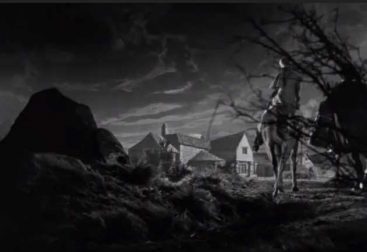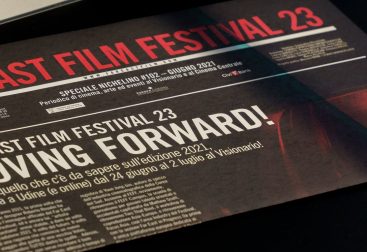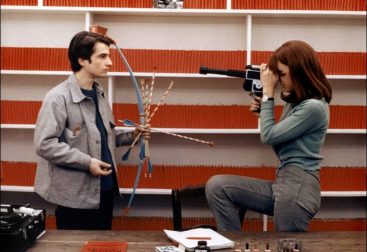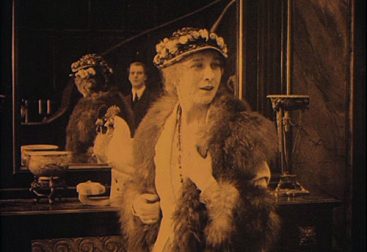A contrasting comparison
At the Berlinale 2020 I could see the world premiere of “Rizi” by Chinese director Tsai Ming-Liang, who lives in Taiwan, as well as the screening of the 4K restoration of “Xiao Wu” (Pickpocket), originally shot on 16mm, and debut film of Jia Zhang-ke, who lives in the Chinese Mainland.
A comparison of the two films, which could hardly be more different, imposed itself.
My personal history of reception of the films by Jia Zhang-ke is somewhat complicated and also very different from my history of reception of the films by Tsai Ming-Liang. So, I would like to recapitulate both in the following, for isn’t it often the case, that the personal history of reception strongly influences our assessment and enthusiasm, as well as our dislike? One can watch the wrong film at the wrong time, and still think to have judged it properly. Later, if this turns out to have been subjective, it is nevertheless difficult to revise.
Let us start with Jia Zhang-ke. If I am not completely mistaken, I saw some of his films on DVD and TV long before I could finally see one of the films of this director in cinema theaters.
Indeed, it is on DVD that I first saw “Xiao Wu”, first feature film by Jia Zhang-ke from 1998. This is when I also already noticed the great precision, the completely flawless dramaturgical structure of the film. Jia Zhang-ke has continuously improved his skills as a director until he made “Touch of Sin” (2013), a film of merciless severity and relentlessness, which with its stringent dramaturgy, so to say, constantly drives the viewer in front of it – for me one of the greatest masterpieces of Chinese cinema.
And now to Tsai Ming-Liang. Contrarely to Jia Zhang-ke, I can remember very well the first Tais Ming-Liang film I watched. It was the film discredited as “melon porn” at the Berlinale 2006; probably by journalists who only have their day-to-day business in mind and, without really watching, devaluate a film that perhaps is simply not as easily accessible as the dozens of wares from Hollywood.
Like many of the early films by Tsai Ming-Liang, “Melon Porn”, whose correct title is “The Wayward Cloud,” is a film that actually consists of at least two films. There are popular Chinese songs interspersed, each one telling its own story. It is very similar to the film “The Hole” by Ming-Liang, the plot of which revolves around the turn of the year from the last to the present millennium. Incessant rains lead to burst water pipes, which in turn create holes in the masonry of the tenements, so that, suddenly, people who previously passed each other carelessly, come into contact. The interspersed songs, however, are adaptations of songs by a – at least in China – very well-known Chinese singer from the fifties. Her “Western name” is Grace Chang, while these songs are sort of contrasted with the Western culture, for they are partially in rock’n-and-roll style. The early films of Tsai Ming-Liang are multi-layered matters, and the critics who dismissed “The Wayward Cloud” as melon porn at the Berlinale probably simply did not understand the film or needed a catchy headline. The reason for the nickname was the main character of the film, a young man who was just working in the porn film business, an apparently hard and exhausting job that made him insensitive to the affection of a young woman. The relationship was just too exhausting for him …

“The Hole” by Tsai Ming-Liang (1998)
Now Tsai Ming-liang came out some time ago and admitted his homosexuality. In China – Tsai Ming-Liang lives in Taiwan – this is still a very courageous step, apparently. His film “Rizi” is about nothing more than two men, their encounter, their daily routine. The young man is the paid lover of the older man. They meet in a hotel; their encounter is almost wordless and takes a long time in the film. Before this, we see the young man cutting vegetables and preparing his traditional meal. The older man lives in a large house and stares at the rain-lashed tropical landscape out the windows. The camera observes everything meticulously, with a sort of documentary and slightly distant gaze. We see the young man walking through the streets, doing shopping, everything is almost wordless and without any real contact with other people.
This also applies to the older man, about whom we find out even less and hardly know more than that he can afford an expensive hotel and a lover that he pays for. We see two individuals who do not appear to be anchored in any social context. Tsia Ming-Liang shows two men who briefly meet – the film, however, lasts over 100 minutes – and who have no other interests than themselves. A look back at Tsai Ming-Liang’s older films shows that also the characters in his earlier films are barely anchored in society, their family relationships are only rudimentary and the social circumstances in which they live are rarely discussed. It is always primarily about the individual conflicts and interests of the protagonists.
This is taken to extremes in the film “Rizi” (Days) discussed here. The two protagonists have practically no contact with other people – the film has no dialogue! The people on the street pass over like shadows; the two protagonists hardly notice them or their surroundings. They are thrown back on theirselves. Two individuals reduced to themselves.
When they leave each other, a day has passed, and one can assume that the other days of the two protagonists differ little from this one. That is the title of the film: Days.
The film by Jia Zhang-ke is completely contrary. As the title suggests, the protagonist is a pickpocket. The title already indicates a social role as well. Placing a figure at the center of a film who cannot be a hero of socialist society, but on the contrary secures his livelihood by theft, testifies not least to the great courage of the director in the face of the well-known unpredictable and often rigid Chinese censorship.
It is hardly surprising that the world premiere of the film did not take place in China, but as part of the Internationale Forum des Jungen Films at the Berlinale in 1998. The film takes place in a seemingly unattractive small Chinese town. There the pickpocket pursues his “business”: he steals identity cards. The People’s Republic of China did not introduce identity cards to the general public until the 1980s, and identity card forgery appears to have become a profitable business. However, the protagonist of the film lives in rather poor conditions – apparently his “business” is not going well. To take a shower, he has to go to a public facility. His social relationships are fragile. His girlfriend, who he met in a shabby karaoke bar, leaves him without even telling him. She is simply gone, and he learns from her friends that she has left town with a richer man. The father of the pickpocket throws him out of the house after an argument.
Though the film owes an important explanation to the viewer: it is not completely clear how the stolen identity cards actually generate profit in cash money for the pickpocket. We only see that the pickpocket throws the identity cards into a fake mailbox. But the viewer does not find out who the recipient is. Here the film has a crucial empty spot, which perhaps is even deliberately created. One could guess that maybe even a corrupt police officer could be the purchaser. It could also be that the censors made a decisive cut, but it seems just as possible to me that the director intentionally left this question open. We too have to leave this question open.
One day the pickpocket is arrested. The sequence that closes the film is very emphatic. The policeman who arrested the pickpocket tied him to a lamp post because he had to run an errand. Here as well, one could suspect that the policeman is only pretending to do so and deliberately exposing the pickpocket to what follows. The angry crowd standing around the pickpocket, insulting and mocking, is getting closer …

Take from the final sequence of “Xiao Wu” (Pickpocket) by Jia Zhang-ke.
An open ending, very much different from the ending of the film by Tsai Ming-Liang. For Tsai Ming-Liang, the next day won’t be much different from the previous one; for Jia Zhang-ke, each day is different from the others …










